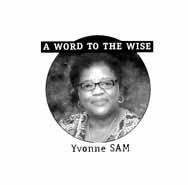 After the “she said” “he said” Will the nomination go ahead?
After the “she said” “he said” Will the nomination go ahead?
We have to give it to America and her reputed brand of politics—– never short of actors or characters, especially with the stage in Washington perpetually poised as politicians gerrymander under a canopy of feigned candor.
Now the likely Supreme Court nomination of Justice Brett Kavanaugh is the latest in the middle of a maelstrom of Beltway politics.
The latest accusatory actress to enter the political dictionary of Washington with the names of others such as Anita Hill, is Christine Blasey Ford 51, who claims that Kavanaugh attacked her during a high school party in Maryland during the 1980s when she was 15 years-old and Kavanaugh, 17.
In a letter dated July 30, 2018 and forwarded to Senator Dianne Feinstein (Democrat, California), who refused to share it with the other Democrats on the Committee, and which did not come up during the confirmation hearings, Christine describes an inebriated Kavanaugh and his classmate Mark Judge pushing her into an upstairs bedroom where they both locked the door and cranked up the music to drown out her screams.
She cried out for help, and then Kavanaugh climbed on top of her, pinning her down and attempted to pull off her clothes. Mark Judge was laughing and urging Kavanaugh along, Ford says. ”
With Kavanaugh’s hand over my mouth “I had difficulty breathing and was afraid that he may inadvertently kill me,” she wrote.
According to her she only escaped when Judge jumped on top of them and all three hit the floor.
Now a psychology professor currently residing in California, Ford barely mentioned the incident, and never reported it to authorities until 2012, when she was in therapy with her husband.
While she expressly asked that the Democrats not move forward with her allegations, Democratic operatives reportedly leaked her letter after Judge Brett Kavanaugh seemed set for confirmation in a matter of a couple weeks.
After the leak Ford felt compelled to come forward with a key Supreme Court seat at stake.
On an encouraging note, Christine Ford will testify some time this week (the day still to be determined), and Judge Kavanaugh will be expected to respond, in similar manner as Clarence Thomas was compelled to address the allegations of Anita Hill in 1991. Both Kavanaugh and Judge Thomas have categorically and unequivocally denied the allegations.
However, if events occurred exactly as related by Ford, then it reveals a totally different Kavanaugh from the upstanding family man on whom the Republicans have been lauding praise ever since President Trump announced his nomination.
Apart from his judicial record, political past and the hyper-partisan divide surrounding his nomination, a nominee for a lifetime appointment to the Supreme Court should not be confirmed without a thorough investigation of such a serious allegation.
Trump’s adviser Kellyanne Conway correctly said, “This woman should not be insulted and she should not be ignored.” That’s critical for the integrity of both Kavanaugh’s nomination and of the Supreme Court.”
Such goings-on is just another of the latest ploy in the campaign against Kavanaugh who faces an uphill challenge towards confirmation.
Before this Kavanaugh has had an illustrious career, having served on the federal bench for more than a decade, and has never been publicly accused of anything of the nature of Ford’s claim, the veracity of which may be difficult to prove taking into consideration how long ago it is alleged to have happened and the minimal number of individuals implicated.
Blatantly evident is the striking parallels between Kavanaugh’s case and that of Clarence Thomas. A nation waits to find out if the results will be the same.
Does it matter that the assault occurred in the early 1980s? What prompted the only record of her disclosure being during the counselling sessions with her husband, although Kavanaugh had been in the news with his confirmation to the DC Circuit?
Was there not a single friend in whom she could have confided before 2012? Is there any evidence of Ford having sought medical or legal advice? The absence of contemporary witnesses is also of some concern.
Should allegations done at age 17 disqualify Kavanaugh from the Supreme Court?
At the time Kavanaugh was a teenager and so was Ford. He was different then, and of course teenagers have been credited with doing dangerous destructive and silly things.
Examples of age and stage behavior are President Barack Obama was a member of his Ponahou High School Choom Gang, named after its taste for marijuana.
Along with his buddies the President would roll up the windows in their car, as they were getting high, tilt their heads back and inhale the smoke that had collected under the ceiling.
At the age of 17 John F. Kennedy gave up his virginity to a prostitute in Harlem, New York. Fearing that he had contracted venereal disease, he spent the rest of the night in a panicked search for a physician.
Jeb Bush was a noted partier while at Andover Academy, where he was put on probation for drinking.
“I drank alcohol and I smoked marijuana when I was at Andover,” Bush said of his high school years, any, or both of which could have led to expulsion.
Being taller than most of his peers Jeb bullied several of them. Also a bully was Mitt Romney, teasing an effeminate classmate for his long hair, along with several friends Romney cornered him with scissors and cut off most of it.
What will happen after the two actors tell their stories and exit the stage?
The aftermath of the allegations against Kavanaugh will be a striking test of the power of the #Me Too Movement.
In the end it boils down not to the issue of sex, but credibility.
To ensure a smooth nomination, ultimate confirmation and less dramatization, the Senate Judiciary Committee should implement a process whereby the #Me Too Movement is notified immediately following the announcement of the likely Supreme Court candidacy. Who knows, there may be many females waiting for the day when they can have their say.












